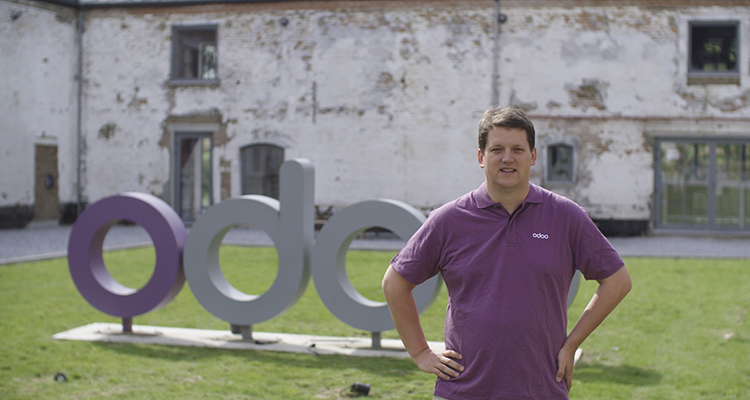Green bonds are an interesting alternative source of financing. They serve to finance 'green activities'.

Just like classic bonds, green bonds are debt instruments: companies or organisations that need money for investment issue bonds. Examples may include a company that wishes to install windmills, or an organisation that aims to combat environmental pollution in the third world. The only difference between a classic and a green bond is the purpose of the investments. In case of green bonds, the projects are 'green' in some or other sense.
The loans are granted and the bonds are thus purchased by pension funds or insurers, for example. Major institutional investors were initially a little wary about green bonds, but have systematically increased their exposure.
In practice, green bonds are used to finance projects in three main areas:
- Energy projects with low CO2 emissions, in particular renewable energy, CO2 storage and waste-to-energy projects (in which waste is converted into heat or electricity);
- Projects involving the energy efficiency of buildings, industry and transport;
- Projects involving the environment and land use in areas such as agriculture, forestry, waste management and adaptations to climate change.
The terms 'green bond' and 'climate bond' are sometimes used interchangeably. Climate bonds focus on climate-related projects, including projects for the reduction of CO2 emissions.
The term 'social bonds' is also sometimes mentioned in the same breath as 'green bonds'. Social bonds are used to invest in vaccination programmes, education, health, female entrepreneurship, human rights, working conditions and local projects.
The private sector is now also getting involved
Major international financial organisations set the ball rolling in this regard. In 2007, the European Investment Bank issued the first bonds under the name 'Green Bonds'. The World Bank and the International Finance Corporation followed suit.
Private companies have also recently stepped up. In 2013, for example, French EDF granted a loan of EUR 1.4 billion – the first liquid bond in euros from a major company. And, in 2014, GDF-Suez issued EUR 2.4 billion of green bonds.
Interest in green bonds increases
Since the European Investment Bank issued the first green bonds in 2007, the market has grown 55% a year on average. According to estimates of the Climate Bond Initiative (an international advisory body for investors in green bonds), the total issue volume amounted to EUR 35 billion in 2014 and EUR 88 billion in 2015. That seems a lot, but falls well short of the entire bond market, which amounted to around EUR 88,000 billion in 2014.
The Green Bond Principles
'Green bonds' are products that are still somewhat in their infancy. To date, there is still no cast-iron consensus on what a green bond is precisely. The first step towards remedying that situation was taken in 2014 with the introduction of The Green Bond Principles. These are a series of standards for issuers of green bonds. The standards are supported by a group of international banks and are intended to boost the transparency and credibility of the green bonds market.
The Green Bond Principles define the purposes for which the proceeds of a green bond may be used. They also evaluate and select appropriate projects and provide an independent verification. Put simply, they specify the requirements that projects for renewable energy, energy savings, sustainable waste and water management, environmentally-friendly transport, etc. must meet. For the time being, these are voluntary standards. However, in order to make the market truly ethical, there will need to be clear criteria for investment themes.
08.03.2024
Businesses stand to benefit from switching to electric and multimodal mobility
BNP Paribas Fortis is ready for the mobility of tomorrow. And Laurent Loncke, General Manager Retail Banking and member of the bank’s management committee confirms this when he says “We do much more than lease electric vehicles”.
How can companies leverage mobility as part of their transition?
"If we look at vehicle usage alone, switching from fossil fuels to electric energy can reduce CO2 emissions by a factor of four. This transition is being encouraged in our country more than ever by tax incentives and tax breaks. From 2035, the European Union will also ban the sale of cars with combustion engines. Whether it’s for the company fleet or company cars for employees, electric driving is the way forward, alongside other forms of mobility."
Are all businesses aware of this?
"These days, two out of every three new vehicles are company cars. And 80% of those orders are electric vehicles, a trend that is also apparent at our partner Arval."
So companies are playing a pioneering role in this transition?
"Certainly. First and foremost because former company cars find their way to the second-hand market at some point, making electric driving more accessible for everyone. Secondly, by choosing an electric car, you can encourage your friends and family to follow your example. Our recent Profacts survey (only in Dutch and French) showed that 85% of electric vehicle owners are satisfied to very satisfied that they switched to an electric vehicle. However, 42% of Belgians are still reluctant. Half of them are worried their battery will run out before they can get to a charging point."
Is their fear justified?
"Not really. Most drivers only feel comfortable with a range of 500 kilometres, even if they only drive a few dozen kilometres a day. It’s true the charging network does need to be developed further. Many people, especially those living in cities, cannot install a charging point at home. BNP Paribas Fortis is contributing to the expansion of the charging network through its participation in Optimile. This Ghent scale-up offers software solutions for charging electric cars and is developing strategic partnerships for the installation and maintenance of charging points."
Can an electric car be part of each employee’s remuneration package?
"Today, there are already less expensive vehicles on the market, making electric driving an option for middle and lower-management. The Total Cost of Ownership of an electric car is the most important factor, however. And this is still much lower than that of a vehicle with a combustion engine. Leasing is often the best solution. We have a comprehensive, tailor-made offering for all companies, regardless of their size and needs."
What exactly do you mean by a 'comprehensive offering'?
“In addition to leasing, we are able to offer charging solutions at home or at work, a charging card for public networks, the automatic reimbursement of electricity consumption at home, an app to find charging stations, and electric driving training through our many partners.”
So a complete ecosystem?
"We want to contribute to the mobility of tomorrow. By financing it, through credits or leasing, and with insurance, but also by working with partners outside our traditional activities. Like Optimile, and Touring, an organisation that is synonymous with reliability."
But mobility isn't just about cars, is it?
"We believe we need to rethink our relationship with the car. Given the climate targets and the increasing scarcity of resources, it is simply not possible to replace every internal combustion engine with an electric car at the moment. Arval offers its extensive expertise to companies considering a different approach to mobility. We help them analyse their needs, propose alternatives to the car, establish a mobility budget or draw up a mobility policy. We offer bicycle leasing, sometimes in combination with car leasing. We strongly believe in multimodality and mobility-as-a-service solutions: the option to combine different transport modes and pay for them without too much hassle. This is also one of the specialities of our partner Optimile."
Are companies and their employees open to this idea?
"The idea of employees no longer saying 'I have this amount for my car in my salary package', but rather 'I have this amount for my mobility' is gaining traction. People are already paying for use rather than ownership in gyms or for streaming services. Mobility is going down the same route, with car-sharing and flat-rate subscriptions, making costs more predictable for businesses and private individuals. But the pace of change will also depend on the success of the federal mobility budget. For now, uptake is slow."
BNP Paribas Fortis SA/NV – Montagne du Parc/Warandeberg 3 – 1000 Brussels – VAT BE 0403.199.702 – RPM/RPR Brussels
Optimile SA/NV – Sassevaartstraat 46 bus 204, 9000 Ghent – RPM/RPR Ghent – VAT BE 0648.837.849 – www.optimile.eu – BNP Paribas Fortis SA/NV holds a greater than 10% stake in Optimile SA/NV.
Arval Belgium NV, Ikaroslaan 99, 1930 Zaventem – Brussels Register of Companies – VAT BE 0436.781.102.
Touring SA/NV, Koning Albert II-laan/Avenue Roi Albert II 4 B12, 1000 Brussels – Brussels Register of Companies – VAT BE 0403.471.401, is registered under this number with the FSMA, Rue du Congrès/Congresstraat 12-14, B-1000 Brussels, and acts as an associated agent on commission for AG Insurance SA/NV. AG Insurance SA/NV owns a greater than 10% stake in Touring SA/NV.
01.12.2023
Investment grants for your business
Belgium’s three regions provide a range of grants for companies and self-employed people making investments. Our experts can help you make sense of the situation and submit your application.

The terms and amounts of investment grants vary greatly from one region to another. The applicable rules depend on the location of the operational entity making the investments. The company’s registered office is not relevant and can be located in any country. You should also bear in mind that applying for a grant is still a fairly cumbersome administrative process. That’s why our experts take care of all the steps, from submitting the grant application to collecting the grant money.
Flanders: a range of grants
Various types of grants are available in Flanders, the most important of which are support for strategic transformations, the ecology bonus, strategic ecological support, the SME e-wallet and the SME growth subsidy.
Each type of support targets different types of investment and different companies. Subsidy levels also vary widely, from 8% for a strategic investment by a large company to 50% for consultancy fees paid by an SME.
Our experts can help you identify subsidy opportunities and then arrange for you to meet a specialist from VLAIO, the Flemish Agency for Innovation and Entrepreneurship, who will then help you with the rest of your application.
Wallonia: traditional and ecological aid
In Wallonia, investment grants are reserved for companies operating in a limited number of eligible sectors. Excluded activities include retail, transport and the liberal professions.
The terms and conditions also differ according to the size of the company. Small businesses must invest a minimum of €25,000. Large companies need to reach higher thresholds and invest in a development zone.
Examples of eligible business investments include buying/building a property, buying land and buying new business equipment.
The basic grant varies from 4% to 6%, but can be higher if the applicant creates jobs, takes an innovative approach or diversifies abroad, for example. A larger grant, up to 20%, may be obtained for projects that promote the sustainable use of energy and environmental protection.
Please note that it is essential to submit the request before any firm investment commitment is made: investments for which you have already accepted a quote can no longer be subsidised.
Our experts can guide your company through the entire process.
Brussels: the most generous
The Brussels subsidy for investments in goods, property or works is open to most sectors. In total, around 80% of the capital's economic activities are eligible for grants. The two main exceptions are education and real estate.
To qualify for a grant, the investment project must be worth at least €10,000 for a start-up business and at least €15,000 in other cases, depending on the size of the business. In addition, it must aim to develop or improve an existing activity: simple replacement expenditure does not qualify.
The aid can amount to up to 30% of the investment, although the average is 12.5%. The level of subsidy depends on a number of criteria, such as whether the company is a start-up and whether the investment will increase the number of people employed by more than 30%.
Over the course of 2024, reforms to the aid system will increase incentives for sustainable and circular economy projects.
Please note that it is essential to submit the request before any firm investment commitment is made: investments for which you have already accepted a quote can no longer be subsidised.
Our experts can guide your company through the entire process.
31.05.2021
Optimise your working capital with factoring
How can you keep your working capital healthy while incorporating the requisite financial flexibility? Factoring helps you to finance your cash requirements in a proper, timely and suitable way.
Securing liquidity is the key to financing your working capital requirements and keeping your business running smoothly at all times. That's exactly what factoring offers.It is a structural solution for optimising working capital. In the video below (in Dutch) in less than half an hour you will gain a clear picture of what factoring has to offer.
If you prefer to watch the video in French, click here.
Factoring: a tailored structural solution
In exchange for transferring your invoices to an external factoring company, you can count on fast, flexible financing, monitor the collection of your invoices, and protect yourself against potential bankruptcy among your customers. Each factoring solution is tailored to fit the needs of your business. This includes companies operating at international level. In Belgium, one in six companies currently outsource their invoices to an external factoring company. The same trend is evident in other European countries.
03.08.2020
Odoo: supporting the growth of a company that’s breaking the mould
Very few Belgian companies can point to the kind of sparkling growth achieved by Odoo, a world leader in business management software for small and medium-sized firms. Underlines Odoo CEO Fabien Pinckaers: “We need a bank with real backbone. We count on BNP Paribas Fortis to support our development.” Watch the video interview.

In the space of barely fifteen years, Odoo has carved out a prime position in its sector. Basing its products and services on open source development, this young company, headquartered in the Walloon Brabant municipality of Ramillies, today does business on several continents and employs over 1,000 people worldwide. Odoo doesn’t do things the same way as other firms – and that includes its approach to banking.
BNP Paribas Fortis recently came up with solutions to two essential requirements for Odoo’s growth: carrying out a restructuring of its shareholder base; and making sizeable real estate investments in local farms in Brabant – one of the hallmark features of the company, which focuses a considerable part of its business there – plus also a major extension project at Louvain-la-Neuve.
Disruption
"Odoo is a disruptive company that tends to shake up the norms on all fronts. This prompts us to think about our business as bankers,” says Jean-François Pierreux, Odoo’s Relationship Manager at BNP Paribas Fortis. He points out: "The company has a positive attitude. It keeps moving forward, it sees the big picture, and it hires people. It’s also pursuing its impressive growth in spite of the health crisis. So it’s our job as bankers to find innovative solutions to the firm’s financial needs and provide them with real added value.”
